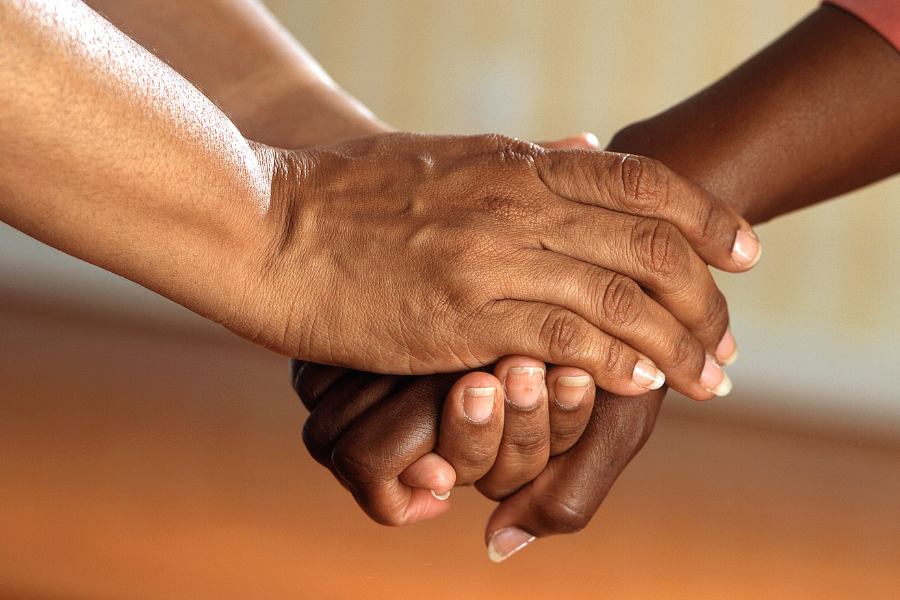HEALING MY GUT: MY JOURNEY OF INTERGENERATIONAL HEALING
I want to share a personal journey from a place of desperation and survival, where dumpster diving for food was a reality as a child that would ensure my next meal, to a path of healing and transforming my gut health. My story is deeply intertwined with the impacts of intergenerational trauma, specifically my mother's struggles with trauma and alcoholism. Through perseverance, education, and self-care, I have found hope and healing, not just for myself but also for my children and future generations.
A Legacy of Trauma
Growing up, I witnessed firsthand the devastating effects of intergenerational trauma. My mother's unresolved trauma and her battle with alcoholism cast a dark cloud over our lives. The chaos and instability surrounding me deeply impacted my physical and emotional well-being.
Desperation and Dumpster Diving:
Living in survival mode, I often found myself resorting to dumpster diving to find food to sustain myself. The lack of nourishment took a toll on my health, and my gut suffered immensely. There were moments where I felt I had no choice, not a second thought whether or not the food that I was about to eat was going to be my last meal, anything you can get your hands on, you ate like there were no tomorrow, you didn’t even care if it was stale or moldy if it was going to give you food poisoning the next day or stomach issues later down the road in life. Did you ever have to go to sleep for supper? Lay on your stomach and sleep the hunger pains away. That reality, for me, was a regular occurrence. I experienced digestive issues and nutrient deficiencies, which would later result in more symptoms like migraines, brain fog, and rashes from years of toxicity buildup from poor eating habits.
Awakening to Intergenerational Trauma:
Recognizing the link between my survival stems from deep-rooted issues from my mother’s experience in St. Anthony's Indian Residential School in Onion Lake, Saskatchewan, Canada. Nutritional studies are only one example of many experiments that have taken place in these boarding schools. Although intergenerational trauma was passed down. I would also like to recognize the resilience and persistence my mother had in keeping her family together and raising all her ten children. Realizing the larger context of intergenerational trauma was a pivotal moment. Understanding the patterns helped me make sense of my experiences and motivated me to break the cycle.
Seeking Knowledge and Support:
To embark on my healing journey, I immersed myself in research and education about nutrition and sought support from professionals, mentors, and support groups. I learned about the impact of trauma on gut health and how it can manifest in physical symptoms and emotional distress.
Nurturing My Gut:
I began prioritizing my gut health through intentional lifestyle changes while navigating the information given to me. This involved adopting a nutrient-dense, whole-food plant-based lifestyle called Eat Real to Heal. Believe me when I say I allowed myself so much grace to process this lifestyle of nourishing the body with fresh organic produce, juicing with nutritious fruits and vegetables, diving into the ultimate liver detox, and consuming the supplements needed to top me up to speed with the healing process.
Self-Care and Emotional Healing:
Understanding the mind-body connection, I realized the importance of addressing emotional wounds as part of my healing journey. I sought counseling and explored various modalities such as prayer, breathwork, meditation, journaling, and connecting with nature to release emotional baggage and cultivate self-compassion.
Building Resilience:
Healing my gut was not an overnight process, but I persevered. I celebrated small victories, stayed committed to my self-care routines, and surrounded myself with supportive people. This resilience allowed me to navigate setbacks and continue my path of healing.
Inspiring Future Generations:
As I witnessed the positive changes in my own life, I became more confident to share my experience of intergenerational trauma and my lifelong healing journey. I advocate for education, awareness, and destigmatization surrounding trauma, fetal alcohol syndrome, and mental health. By sharing my story, I hope to inspire others who may be on a similar journey.
Conclusion:
Healing my gut has been a transformative part of my intergenerational healing process. Clawing out from the belly of the beast, I have emerged with newfound resilience, knowledge, and hope. My journey is ongoing, and I continue to prioritize my gut health as I work towards creating a sustainable future free from the chokehold of intergenerational trauma. Remember, healing is possible, and you too can embark on a journey of self-discovery, transformation, and longevity.



